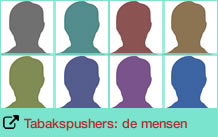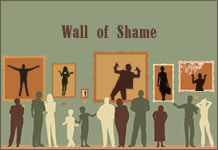Dutch Parliament considers generational cigarette and vaping ban
Citizens’ initiative Nicotinee to be discussed on 12 December
05 December 2024
Urged by public health activists, Dutch parliament this month will debate a national ban on selling tobacco and vaping products to residents born after 1 January 2012. The ‘generational ban’ would gradually erase smoking and vaping among future Dutch generations while leaving current nicotine-users untouched.
By the web editor
The debate follows a citizens’ initiative, called ‘Nicotinee’ (‘No to nicotine’), which collected more than 40,000 signatures in favour of a parliamentary debate on a ban, making it mandatory under Dutch law for parliament to put the topic on its agenda. The debate is scheduled for Thu 12 December, with a vote expected on 17 December.
“Every year 20.000 people die in the Netherlands as a consequence of smoking”, says Wanda de Kanter, lung physician and chair of the Youth Smoking Prevention Foundation, one of the initiators of the citizens’ initiative. “Recent figures from the National Institute for Public Health and the Environment here show that 670.000 people suffer from chronic diseases caused by smoking. And now we see that children and young people are taking up smoking again, because of new, villain promotion strategies by the nicotine industries. Their marketing story that these products are meant for harm reduction is absurd when you see the colours, the lights, the flavours and even the games they put in these products. E-cigarettes, nicotine pouches, heated tobacco, all these products are meant to make new generations addicted to nicotine. This must be stopped and that is why we plea for a law that sets a clear norm and prohibits the sale of any nicotine containing product to anyone born from 1 January 2012 onwards.”
Legal age to raise every year
The proposal foresees in an annual raise of the legal age to buy tobacco with one year from 2030 onwards. By that year those born in 2012 will turn 18, until now the legal age for tobacco purchases. The proposal leaves current smokers unaffected; they will be allowed to continue to buy tobacco and non-flavoured e-cigarettes. Retailers who still sell nicotine products to underaged buyers will be fined. Smoking will not be punishable for the generations to come. The proposed law, in combination with intensified upholding of tobacco laws must, however, protect these next generations from doing so.
The citizens’ initiative Nicotinee was launched late 2022 by Youth Smoking Prevention Foundation, Gezondheidskloof.nl, pulmonologists association NVALT, internists’ association NIV and consumers’ organisation ConsumentenClaim. It is supported by the federation of all medical associations KNMG, the combined health funds (Lung Fund, Cancer Fund and Heart Foundation) and many other organisations.
The organisations are alarmed about the vape epidemic among children and youngsters in the Netherlands. Recent figures show that 1 in 10 children in the age between 12 and 14 had used an e-cigarette or vape in the last year. In the age group 12-25 almost 22 percent had used a vape in the year before, and 10 percent in the month before. Even more concerning: in the group that used a vape in the previous month, almost 70 percent also had smoked cigarettes.
A clear uptake of smoking
“There is clearly a trend in the uptake of smoking since the introduction of the vape. The continuous downward trend in smoking prevalence among youngsters since 2003 has stagnated since 2017”, says De Kanter.
In January 2024 the Dutch government introduced a flavour ban for e-cigarettes, to counter the vape hype. However, flavoured vapes are still being sold, both under the counter by tobacco and vape shops and by dealers in schools and on the streets.
In reaction to arguments that a generational ban is not possible under EU-law, the initiators state that health policy is reserved for individual Member States and that EU-law allows for exemptions on the EU tobacco regulations when urgent health issues are at stake. “There is no doubt that the current nicotine epidemic in our country is such an urgent issue”, says De Kanter. “If we don’t act now, we will have to deal with many thousands of ill people in the decennia to come. This is a health issue of the first degree. It will cost our society billions if we don’t intervene now to stop this merciless industry and start protecting our children.”
During the parliamentary debate on 12 December, De Kanter will present the citizens’ initiative, after which MPs will debate the proposal. All motions forwarded during the debate will be voted on a few days later, on Tuesday 17 December.
Meanwhile, almost 58,000 people have already signed the citizens’ initiative.
tags: Nicotinee | Rookpreventie Jeugd | nicotine | Wanda de Kanter









 Stichting Rookpreventie Jeugd is geregistreerd als Algemeen Nut Beogende Instelling (RSIN: 820635315 | KvK: 34333760).
Stichting Rookpreventie Jeugd is geregistreerd als Algemeen Nut Beogende Instelling (RSIN: 820635315 | KvK: 34333760).